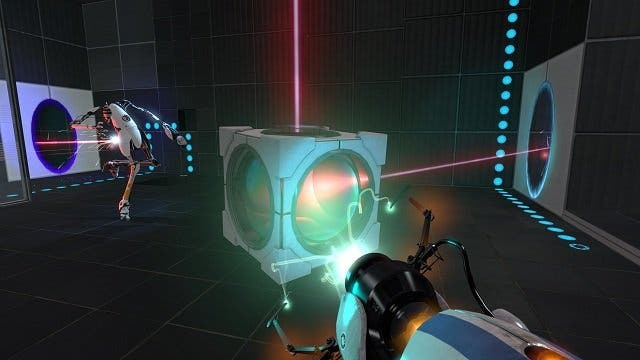Valve's Gabe Newell
CS: GO, Steam, Portal 2 DLC and Half-Life 3.
We just see it as a useful and logical extension of in-game trading as to start looking at cross-game trading, and trying to think of how the activity of playing one game is beneficial to the widest possible. You're looking for network effects. You can design a game so nobody benefits from your playing it. That's probably closer to the traditional way of thinking about it. What we're trying to do is ask ourselves, how can we design stuff so everybody benefits from other people playing the game?
You start off saying, how in the world could somebody playing CS: GO benefit somebody who's playing TF2? Then you say, well, if there's economy and crafting and things like that that are going across games, then everybody's going to benefit. So, that's where we're headed with that, to try to understand better what sort of cross-game network effects we can create, in the same way with the social networking features, there's scale value for doing that. But you'd also like to see the trading benefits of having multiple games participating in a trading system.
We need to hire an economist, because we keep bumping up into these issues. You're starting to look at weird issues like currency and inflation and productivity and asset values and liquidity of asset categories. We just wish we were smarter about this stuff. We're reading frantically. We're brushing up, and all we're doing is convincing ourselves that we're more stupid. Half the time people are saying, oh, well, illiquid assets inherently have a penalty, so this argues for trade-ability, that we're essentially becoming a Russian currency model in the 1970s. Everybody races off to try to read papers on the implications of that.
We think we want to move in the direction where everything is an item of exchange. We just aren't totally sure how to do that right. We're sure there are economists out there who understand this really well. We feel like we're this third-world developing country. We've discovered rocks! And we've discovered sticks! And there's this other thing out there and we should move our economy in that direction. There must be somebody at the World Bank who can tell us what we ought to be doing. We just don't know what that is yet.

We totally understand why that's a smart thing to do, because we feel very naive. We do have a psychologist on staff, and he's been insanely valuable in a bunch of different ways to make us smarter. There are all these things we sort of knew that we ought to know about behavioural science, about the perceptual system. Just having Mike [Ambinder] talk about how the eye works, it's like you could feel everybody in the company getting smarter as he explained, no, that's not how eyes work. This is how eyes actually work. Everybody goes, oh, so that explains a whole bunch of things.
Oh absolutely. The game designers would monopolise all of Mike's time if they could. So Mike has to balance his time between educating people and building systems. He's been building all these bio-feedback devices so he can directly measure player state and to get us out of anecdotal metrics of the impact our game is having on a gamer, and instead get to directly measure quantitative metrics. He's like, just let me finish these things and all of a sudden a whole bunch of stuff will be a lot clearer.
The other thing, as always when we hire smart people, just his knowledge of statistics has been invaluable. We have these incredibly complicated experiments we're running all the time. And then we get all this data and we're all like, OK, how do we look at 27 different variables at the same time and understand how we can exclude variation with respect to this variable, and instead only extract the information about this? He's like, oh well, this is what I would have told my postdocs when I was running them through their postdoc stuff.
Oh he's incredibly smart. That's the fun thing about working at Valve. Everybody at the company has abilities and passions that make everybody else better. Sometimes I feel like I'm the biggest fanboy for the company because I get to see what everybody does behind the curtain.
